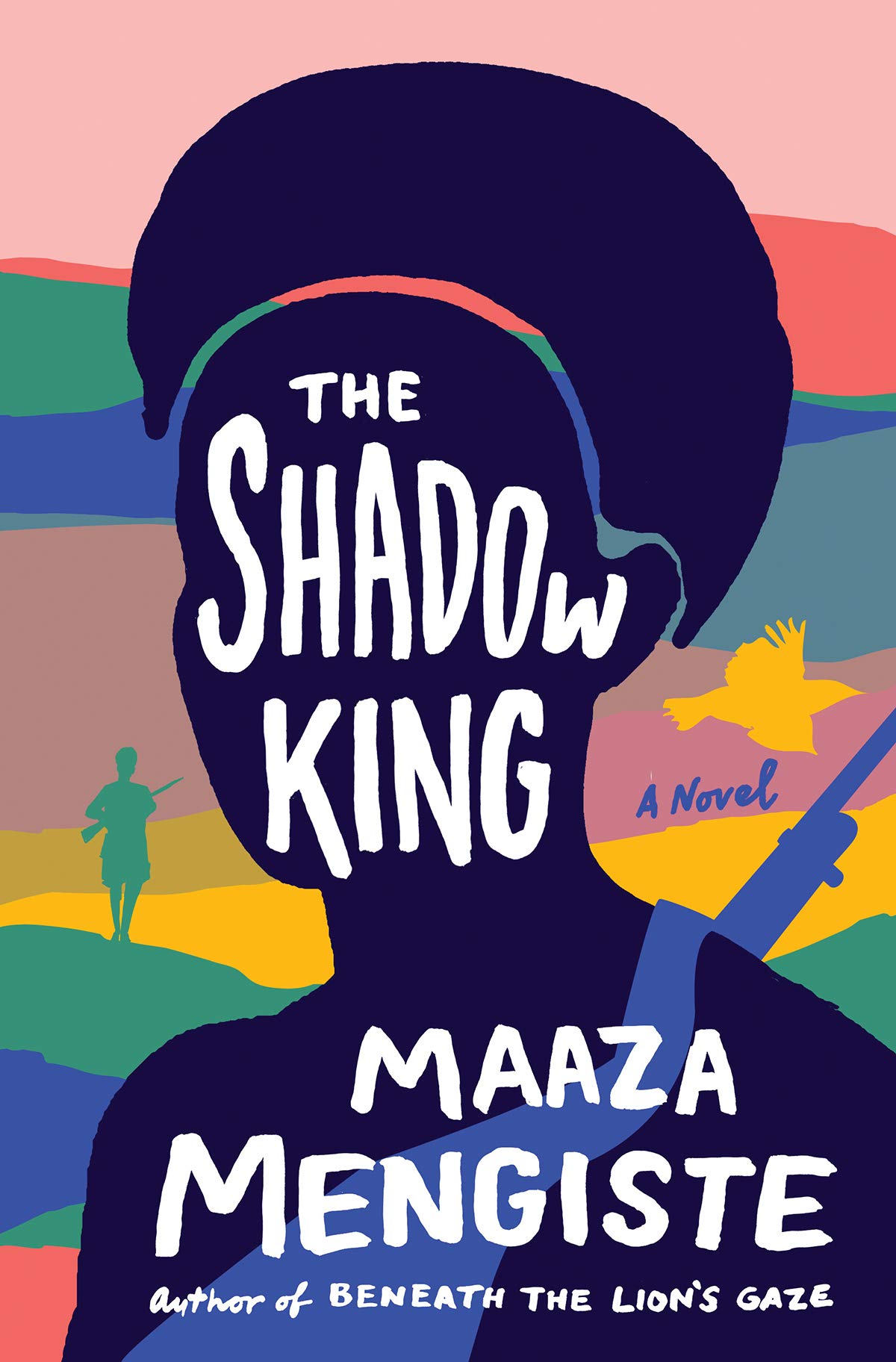W.W. Norton & Company, 2019

For a lot of people, The Shadow King will be a deeply challenging read. To start, it is a story that was to me, and will be to many white/American readers and readers with euro-centric educations, an extremely foreign story. I combatted this by occasionally pausing to orient myself geographically and by reading wikipedia pages as necessary (obviously this is the lowest level of research, but even this small effort helped). Another area in which this novel is challenging is in the morality of its characters. For the most part, Mengiste does not write characters that are fully good or fully bad. And it isn’t just that each character sits somewhere in the middle of the morality spectrum, but that most of the main characters do both very good and very cruel things.
The novel is primarily about two women—Hirut, an orphan and a servant, and Aster, an upper-class woman and wife to the powerful and respected Kidane—and the roles they come to play in Ethiopa’s war with the invading Italian army. There is a much wider cast of characters, however; you will also read from the POV of Haile Selassie, the Emperor of Ethiopia, as well as of Ettore Navarra, a Jewish photographer for the Italian army. You will come to feel a full and extremely complicated range of emotions for many of the characters. Mengiste does not go easy on the likable characters and does not ignore the humanity of the detestable ones. These characterizations make much of the novel difficult to process, but also lend to its greatness.
And since I have not said it outright yet, The Shadow King is a stunningly fantastic novel. Mengiste’s writing is spectacular. I found myself stopping over and over again to jot down sentences that blew me away. Eventually I gave up on writing down quotes and started keeping track of entire pages, and even consecutive pages, that were so stunning that to try and limit my record of them to just one sentence would be both impossible and a crime.
Regarding the pacing of the novel, while there are a lot of big action moments, Mengiste spends far more time with the characters as they deal with the consequences and memories of an event than with the event itself. Similarly, the moments leading up to a battle seem to last far longer than the actual battle. The Shadow King is frequently about memory and different kinds of loss. Mengiste interacts with these themes through Hirut and the loss of her parents, Aster and the loss of her child, Selassie and the loss of his daughter and in many ways his country, and also symbolically through Ettore’s photography. Some of Mengiste’s most beautiful writing is in the way she describes photos that Ettore has taken and in musings on what photos show us and what they cannot. Because the plot follows the POV of characters on different sides of the conflict and with extremely different experiences, the reader sees how different truths can be found in each moment. What Ettore, for example, believes Hirut to be experiencing is almost never what she is experiencing at all:
“He wants to shout to Hirut and ask her how she does it, how she manages to stay in that jail, leaning against that wall as if it were the most natural thing in the world to be trapped.”
Ettore is frequently used to demonstrate the colonizers naïvety and cruelty toward the colonized, even when that cruelty is sort of accidental and nearly well-meaning. The fact that he’s a Jew whose parents are in Italy facing the ramifications of being Jewish in Europe during WWII makes this all the more complicated. The Shadow King, however, is ultimately Hirut’s story and we are called to sympathize with her, or maybe more importantly, accept that she owes no white man, or any man at all, her sympathy.
While much of the The Shadow King is painful and heartbreaking, the female protagonists demonstrate exceptional growth and resilience, and Mengiste offers up moments of pure female empowerment. One of my favorite scenes occurs when Hirut experiences what it is like to feel truly joyful after years of a life in service:
“This is where all the light in the world has settled, she thinks. This is where it has been while she was struggling in such darkness.”
If I have not made it obvious yet, I think The Shadow King is a Must Read novel. It is challenging, but a challenge we owe to ourselves—and to the women that came before us—to take on.
Links: Goodreads | Buy it on Bookshop .org

